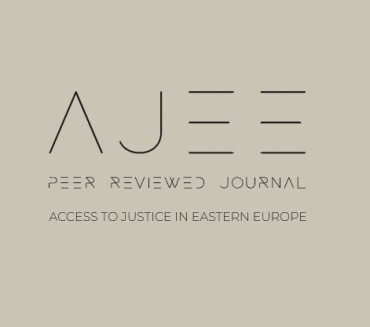Summary: 1. Introduction. – 2. Enforcement of MSAs: Preliminary Remarks. – 2.1. Voluntariness in mediation and the enforcement of MSAs: the effectiveness issue. – 2.2 The recognition and enforcement of MSAs: a general understanding. – 3. Enforcement of MSAs at the National Level: The Experience of Austria and Ukraine. – 3.1 Notarial deed. – 3.2 Approval of the agreement by arbitration. – 3.3 Approval of the agreement by the court. – 4. Enforcement of MSAs in Cross-border Disputes: EU and Ukrainian Perspectives. – 4.1 The Brussels Ia Regulation and the enforcement of MSAs. – 4.2 The New York Convention and the enforcement of MSAs approved by the international commercial arbitration. – 4.3 The Singapore Convention as a global regulation of the enforcement of MSAs resulting from international commercial mediation. – 5. Conclusions.
Background: The recognition and enforcement of settlement agreements resulting from mediation are of key importance for the effectiveness of this alternative dispute resolution method. Austria is considered to be one of the pioneers of mediation practice in Europe, and its developments can be helpful and interesting for other countries, especially for Ukraine, which obtained the EU candidate country status. In Austria, there are three main possibilities for making such settlement agreements enforceable: a notarial deed, approval by the arbitration tribunal, and approval by the court. In cross-border disputes, enforceability can be reached within the Brussel Ia Regulation, the New York Convention, and national procedures for the recognition and enforcement of foreign court judgments and other acts. In Ukraine, there is the possibility of court approval and approval by arbitration of such settlement agreements.
Methods: The present research is based on a comparative approach. The authors juxtaposed Austrian and Ukrainian national models of recognition and enforcement of agreements resulting from mediation. The comparison allows us to see both models’ strengths and drawbacks. The analytical method was used to interpret national legislature and international instruments. Using hypothetical models, the authors make a prognosis about the legal effects of recognition and enforcement of agreements resulting from mediation in cross-border disputes in national legal orders.
Results and Conclusions: The authors propose amendments to the Ukrainian legislation, in particular, to enshrine in the CPC of Ukraine a new procedure of approval of settlement agreements resulting from out-of-court mediation and the possibility of the enforcement of such agreements as notarial deeds; to provide direct enforcement of arbitration awards; to introduce a new simplified procedure for the enforcement of judgments and other enforceable titles for the implementation of the Brussel Ia Regulation during the adaptation of Ukrainian legislation to the EU law; to adopt the Law on ratification of the Singapore Convention and enshrined simplified procedure for enforcement of the international settlement agreements resulting from mediation.

